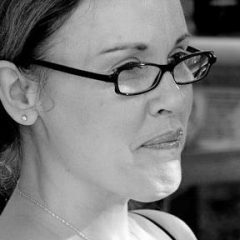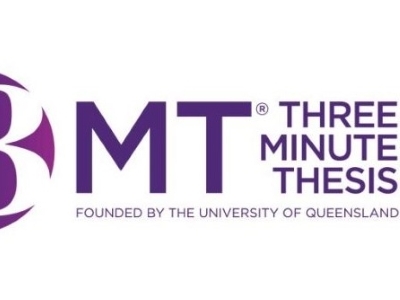This ongoing series is looking at PhD alumni who are doing non-academic jobs. Each person tells their story and provides tips on finding work in the non-academic sector. To read other stories in this series, please visit our Alumni Success Story archive.
 Janet Tamalik McGrath was educated in the Arctic and then worked as a translator.
Janet Tamalik McGrath was educated in the Arctic and then worked as a translator.
“When I worked in translation and was asked to translate for researchers on occasion, I used to wonder how I could become the researcher myself,” says McGrath.
The answer was many years of education and, finally, completion of her PhD in Canadian Studies (and a collaborative degree in Political Economy) from Carleton in 2012.
Over the years, she focused on her goal in order to feel confident to support Nunavut communities in developing their own approaches and their own research interests and questions.
“The elders often confirm that this is important – I did it to have the ability to innovate based on the vast knowledge Inuit have thrived on for centuries,” says McGrath. “To get to this place, I had to immerse myself in and understand western knowledge – but my personal footing is in my community relations.” It helped that she was already fluent in Inuktitut.
Upon graduation, McGrath headed back North. “I can work anywhere with my skills and education,” shares the alumna. “I chose to work up North because I feel urgent about the older generation of Inuit – their contribution, their stories, their legacy. We don’t have a lot of time to do the work of making connections between generations.”
Today, she is self-employed doing contract work for Pirurvik, a company that offers a range of specialized services, programs and productions grounded in the Inuktitut language and the Inuit way of life. She is compiling and developing grammar resources for students, developing instructor training and mentoring programs and instructor classroom resources.
McGrath is also working on a book, based on her dissertation. “I was not sure whether or how it would be a book – I really just followed my heart and wrote what was inside,” she says. “Very soon after, I got an Arctic publisher interested. InHabit Media is an award-winning company with a very strong distribution network in the south – and to my relief and delight – they wanted to publish it as I had written it – in Inuktitut first.”
McGrath says current PhD students can prepare for life after their degree by doing the following: “Know your strengths and what you are most passionate about and base decisions on those things. I would encourage anyone to write a book from that place of strength, commitment and passion. In graduate school, you can become so aware of how much knowledge there is, and get the sense that there is always someone who knows more than you – but you need to shake that all off. We come to school with gifts, we leave enriched – what a world of possibilities that makes!”
You can read more about McGrath’s thesis by reading this story about her.
She has the following tips for current grad students interested in pursuing self-employment:
1. You have to have a good sense of the market for your skills. Do that by talking to many people in the field of interest. You will need a reliable minimum supply of clients, so also source out potential clients and supporters in the process of talking to people.
2. The bottom line is paying your rent and having food – so make a calculation of minimum amount that you need to bill monthly to be able to get by. Do a minimum-plus amount. For example: rent+food+transportation+communications+other bare essentials – then add 10%. If you make that target each month, you know you are fine. Likely because you are both skilled and passionate about the work you share, you will go over the minimum-plus amount at least a few times. This “surplus” should be squirelled away in the first few months – so you have one month of expenses in the bank as a backup. Once you have saved one month, make it two. Then you will not be as worried about security. For other circumstances, there are business loans and grants that graduate students can look into: http://www.grants-loans.org/blog/ and http://www.grants-loans.org/blog/?s=self+employed+business+grants+ottawa+canada
3. Once you know what you are good at and passionate about and you have done an assessment of the market for your services and found a reliable demand — learn everything you can about taxes, books, accounting, investing from experts in the field. This doesn’t need to cost much. There are lots of Internet resources and how to books for basic business information. I would also urge people to consider using something like “Neat receipts” which is a mini scanner to help your business be paperless. Each receipt is inputted into a scanner that reads the information and can tally up expenses, etc. There is also an iPhone app where you can just take a photo of the receipt and the app will input it into your books.
4. There is a book I would recommend to interested graduate students: “The Secrets of Self-Employment”. There is also a good self-employment network in Ottawa for women which I have heard of from friends: http://www.womensbusinessnetwork.ca/. Meeting people who are self-employed is inspiring, enriching and empowering. People who love and choose self-employment have the quality of being inspired and invigorated by what others may experience as “insecure”. We love the creative field of possibilities and finding new ways to address challenges. Of course, one can be creative within a job – but someone suited for self-employment feels more creative and motivated when making it on their own. Self-discipline is required for sure, but graduate school would have prepared you well in that regard. Graduate students have a lot of flexibility and also a lot of demands on their time. They hone the craft of being a scholar with a particular creativity and discipline. This is ideal to self-employment. I applied my prior-acquired self-employment skills to my work in graduate school – others can translate that the other way around!
Tips from other PhD alumni include:
“Start the groundwork for securing a job well before you graduate. Draw on your network and go out and meet people. It’s tough enough to just finish a thesis, let alone find employment, but you have to remember that the best way to showcase your skills to a prospective employer is to go out there and meet them.” –Joshua Kilberg
“Work on stuff that really matters in the real world. Keep eyes wide open on latest trends and developments in the field. Be prepared for new challenges!” — Qi Liu
“Besides the obvious method of continuously networking, the other one is discovering how to package your diverse skillset to be of value in the marketplace. I didn’t know the concept of being a data scientist before I started my job search and that my various skills allowed me to do this job. It is through the discussions and interviews that you refine your value proposition. Think of it as both product and market development. Seeing the need and marketing yourself as the solution for it.” –Rod Story
“Network early and often. Your peers and colleagues can provide you with the connections to find that first job. Also, try to best to distinguish yourself from other job seekers. It is a very competitive job market, and novel skill sets and accolades can definitely help grab the attention of hiring committees.” –Kyle Hanson
“Don’t limit yourself by what is typically done. Look into every opportunity that presents itself and you might surprise yourself by what you find.” –Crystal Blais
“If you’re looking for work outside of the academy, be comforted to know that there are many PhDs in non-academic jobs. Be proud of your PhD and use it as a source of confidence.” — Howard Fremeth
“Many opportunities are not posted, so keep in touch with your friends and colleagues, and try to network as much as possible. Your next opportunity may be only a conversation away. Don’t be afraid to approach organizations and let them know what you are able to offer.” — Jeff Gilchrist
Wednesday, November 27, 2013 in Alumni Success Stories, News
Share: Twitter, Facebook



